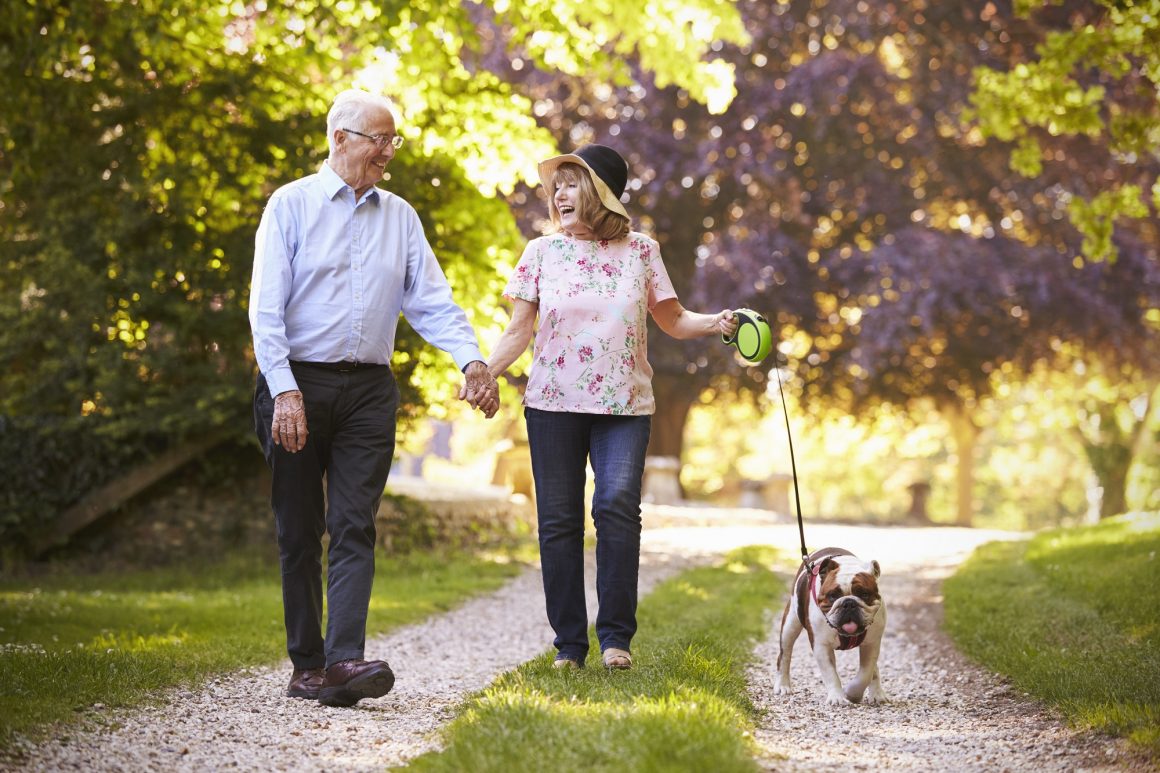Pets can play an important part in the lives of human beings, making a positive impact on us psychologically, physically and emotionally.
In general, there are a number of health benefits to owning a pet regardless of age. Pets typically increase our opportunities to socialize, exercise and be outdoors. Regular activities with our pets such as walking, jogging, or even just playing at the park can have impacts on our own health from lower blood pressure and cholesterol levels to decreased risk of depression and loneliness.
According to a poll published by the University of Michigan, 55% of adults between the ages of 50 and 80 who responded say they have a pet. Regardless of animal type, those respondents say their pets increase their mental and physical health.
Benefits of Pets for Aging Populations
There are some uncomfortable truths that come with aging. Siblings, friends, parents and other loved ones often pass away. Their departures can make it difficult for seniors to move on or to experience joy in things that once provided a great deal of it and lead to feelings of anxiety, loneliness and depression.
Pets, however, can provide a great deal of companionship. They don’t have their own schedule and they are never unavailable to us. Smaller pets can travel with us and in general, our furry friends provide a great deal of structure in our lives as they help us form routines. For patients suffering from Alzheimer’s or other conditions related to cognitive decline, that sense of routine can be a useful tool to organize the day. In addition, pets can help prevent late night wandering by keeping owners occupied.

Our pets can also provide a sense of purpose as they rely on us for food and exercise. That exercise gets us out of the house, experiencing life and other people in ways that are healthy. Remaining active helps us maintain a sense of calmness and provides an opportunity to socialize with other people.
Pets also keep us from dwelling on the past. Dogs and cats are known for their ability to live in the present. It’s something humans often struggle with and for seniors in particular, not worrying about tomorrow or thinking about the past can be a difficult task. But pets have a way of rubbing off on us and can help seniors stop stressing about what may come, instead forcing us to just enjoy the moment.
Finally, pets also provide us with a sense of security and as it turns out, they’re indeed a great deterrent to unwelcomed guests. According a survey from NBC affiliate news station KTVB in Boise, Idaho that surveyed 86 burglars in Oregon’s correctional system, dogs were one of the biggest deterrents when targeting a home, with one respondent saying: “Dogs are a deal breaker for me.”
What Pets Should Seniors Consider?
While many seniors will find small breed dogs attractive as they are less likely to cause an injury, some breeds can also be very high energy and present the senior with other challenges they are not looking for. An older dog that is housebroken and calmer tends to be a better fit than puppies or young dogs that need a great deal of activity in their daily lives to be trained.
There are organizations that will work with seniors to find the right pet for individual older adults and will take them back if it simply isn’t working out.
Another thing to consider for those who are struggling with certain conditions may be a service dog that is trained to work with patients suffering from specific disabilities. Whether it’s hearing impairment, vision impairment or a physical disability, there are service dogs that can help older adults navigate their daily routine with greater ease, boosting quality of life and the ability to age in place.
